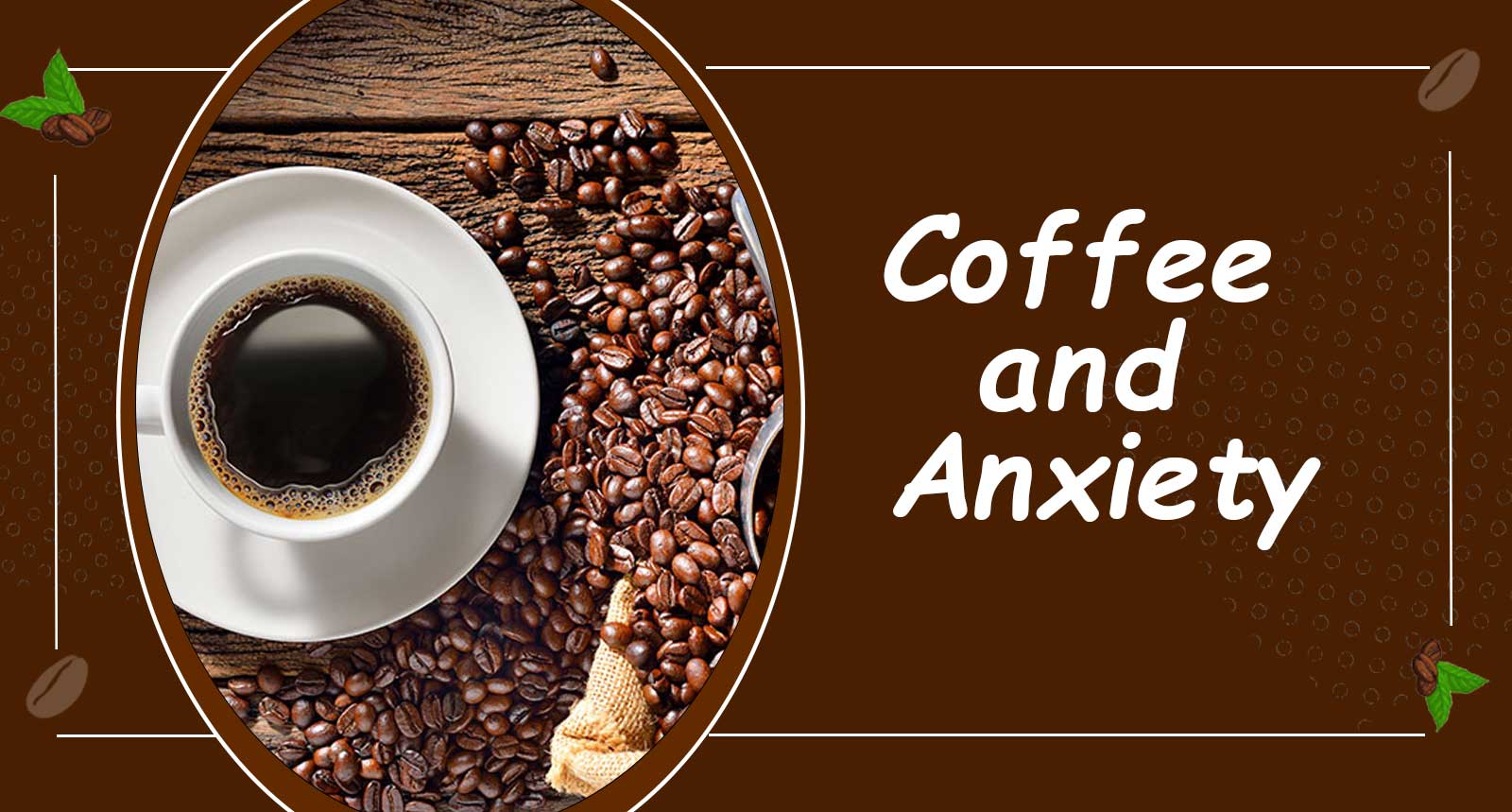In today’s fast-paced world, many turn to coffee as a source of energy and alertness.
However, there’s a growing concern about the potential connection between coffee consumption and anxiety.
Is your favorite morning pick-me-up causing anxiety or is it just a myth?
Coffee, a beloved beverage for millions, is renowned for its ability to kickstart our mornings and keep us alert throughout the day.
Role of Caffeine
Caffeine is the primary active component in coffee that contributes to its stimulating effects.
It works by blocking adenosine, a neurotransmitter responsible for promoting relaxation and sleepiness.
By doing so, caffeine enhances alertness and concentration. But, it’s essential to recognize that for some individuals, these same effects can trigger anxiety or exacerbate existing symptoms.
Coffee’s Impact on Stress Hormones
Coffee consumption can lead to an increase in the release of stress hormones like cortisol.
This can be beneficial in moderate amounts by helping you stay alert, excessive cortisol levels can lead to heightened stress and, in some cases, anxiety.
Connection with Panic Attacks
For those with a predisposition to anxiety disorders, coffee may be a potential trigger for panic attacks.
The caffeine in coffee can stimulate the fight-or-flight response, which can be intensified in individuals already prone to anxiety.
Personal Differences
The relationship between coffee and anxiety varies from person to person.
Some people can consume coffee without experiencing any anxiety-related issues, while others may find it significantly affecting their mental state.
In the process, we’ll look into the finer points of this connection and offer suggestions on how to choose carefully when it relates to your coffee consumption?
We’ll explore the nuances of the coffee-anxiety connection and provide guidance on making mindful coffee consumption choices.
Can Coffee Help Reduce Stress and Anxiety?
The notion of coffee reducing stress may sound contradictory given its stimulating properties.
However, there are certain aspects of coffee consumption that can have a calming effect on some individuals.
We’ll look at the different ways by which coffee could reduce tension and anxiety.
Moderation and Stress Reduction
In moderate amounts, coffee can offer a sense of well-being and relaxation. It can enhance mood and concentration, which, for many, can help reduce stress levels.
Moderation is the most important factor. Caffeine excessive consumption has a risk of increase anxiety and stress rather than reduce it.
Antioxidants and Mental Health
Coffee is rich in antioxidants, which have been linked to various health benefits.
These antioxidants may play a role in protecting brain cells and potentially reducing the risk of certain mental health issues.
While this doesn’t directly eliminate anxiety, it can contribute to overall mental well-being.
Ritual of Coffee
The act of preparing and enjoying a cup of coffee can be a comforting and stress-relieving ritual for many.
Taking a break and savoring a warm cup can provide a sense of relaxation and respite from daily stresses.
Coffee’s Impact on Sleep
Poor sleep is a common contributor to stress and anxiety. For some, consuming coffee, especially in the afternoon or evening, can disrupt sleep patterns.
As we delve deeper into the relationship between coffee and stress reduction, it’s crucial to remember that individual responses can vary significantly.
What works as a stress reliever for one person may not have the same effect on another?
Stress relief is highly individual, and what works for one person may not be effective for another.
Effects of Coffee and Anxiety on Health
The interplay between coffee and anxiety can have significant repercussions on one’s overall health.
We’ll examine the potential effects of this dynamic duo on various aspects of your well-being.
Cardiovascular Health
Excessive coffee consumption, especially in individuals who are sensitive to caffeine, can lead to increased heart rate and blood pressure.
This heightened cardiovascular activity can be a source of concern for those with anxiety, as it may exacerbate symptoms and affect heart health in the long term.
Gastrointestinal Health
Coffee is acidic and can irritate the stomach lining, potentially leading to gastrointestinal discomfort.
For those already prone to anxiety, these physical discomforts can contribute to heightened stress levels.
Sleep Disturbances
Anxiety can disrupt sleep, and so can excessive coffee consumption, particularly when consumed late in the day.
The combined impact of anxiety and caffeine on sleep quality can create a cycle of restlessness and exacerbate anxiety-related issues.
Psychological Health
Long-term anxiety and excessive coffee consumption can lead to psychological challenges. Anxiety disorders, when left unmanaged, can have a profound impact on mental health.
Additionally, coffee’s stimulating properties can sometimes exacerbate anxiety symptoms, creating a challenging situation for individuals dealing with both.
Managing the Balance
Finding the right balance between coffee consumption and managing anxiety is essential for overall health.
This part will look at ways to help you find that balance and decide how much coffee is right for you given the possible health risks?
Understanding tips to help you strike a balance and determine the appropriate coffee consumption level based on potential health risks.
We’ll continue to delve into this complex relationship to provide you with the knowledge you need to maintain a healthy and balanced lifestyle.
Is Coffee and Anxiety Beneficial for Health?
The relationship between coffee and anxiety is a complex one, and it’s essential to weigh the potential benefits and drawbacks for your overall health.
We’ll explore whether there are circumstances where the combination of coffee and anxiety might actually be advantageous for health.
Potential Cognitive Benefits
For some individuals, moderate coffee consumption may enhance cognitive function, which can be especially beneficial when facing stress or anxiety-inducing situations.
Coffee can improve alertness, focus, and concentration, potentially helping individuals manage stress more effectively.
Mood Enhancement
Coffee’s stimulating properties can lead to a boost in mood, which can be helpful for those experiencing stress or mild anxiety.
The release of certain neurotransmitters, like dopamine and norepinephrine, can create a temporary sense of well-being.
Social Connection and Support
Enjoying a cup of coffee with friends or family can provide a sense of social connection and support, which is essential for mental health. The act of sharing a coffee break can offer a valuable opportunity to discuss and address sources of anxiety.
Adaptive Stress Response
In some situations, a mild stress response can be adaptive. Coffee can help individuals respond to stressors effectively, particularly when they need to stay alert and focused during demanding tasks.
Balancing the potential benefits and drawbacks of coffee and anxiety for your health is essential.
We’ll continue to explore this multifaceted relationship, providing you with insights to make informed decisions about your coffee consumption in the context of your overall well-being.
How to Limit Your Caffeine Usage?
For individuals looking to manage anxiety or reduce the impact of caffeine on their health, it’s crucial to understand how to limit caffeine consumption effectively.
We’ll provide practical tips and strategies to help you cut back on caffeine while still enjoying your coffee in moderation.
Gradual Reduction
Cold turkey may not be the most effective approach. Gradually reduce your caffeine intake to minimize withdrawal symptoms and make the transition smoother.
Choose Decaffeinated Coffee
Option for decaffeinated coffee when possible. It offers the flavor and ritual of coffee without the stimulating effects of caffeine.
Set a Daily Limit
Establish a daily caffeine intake limit that suits your needs and health goals. Stick to this limit to ensure you don’t overindulge.
Monitor Your Intake
Keep track of the caffeine you consume from various sources, not just coffee. Be mindful of hidden sources like energy drinks and certain medications.
Time Your Coffee Intake
Consume coffee earlier in the day to reduce its impact on your sleep and minimize potential sleep-related anxiety.
Stay Hydrated
Drink plenty of water throughout the day to help your body stay hydrated, counteracting the dehydrating effects of caffeine.
Seek Alternatives
Explore caffeine-free alternatives like herbal tea, which can provide warmth and comfort without the stimulating effects of coffee.
Effectively managing your caffeine consumption is a crucial step in mitigating the potential impact of coffee and anxiety on your health.
Conclusion
The relationship between coffee and anxiety is individual, with some benefiting and others experiencing anxiety or sleep issues.
Balance your caffeine intake for your well-being by following these strategies. Enjoy coffee in a way that works best for you.

